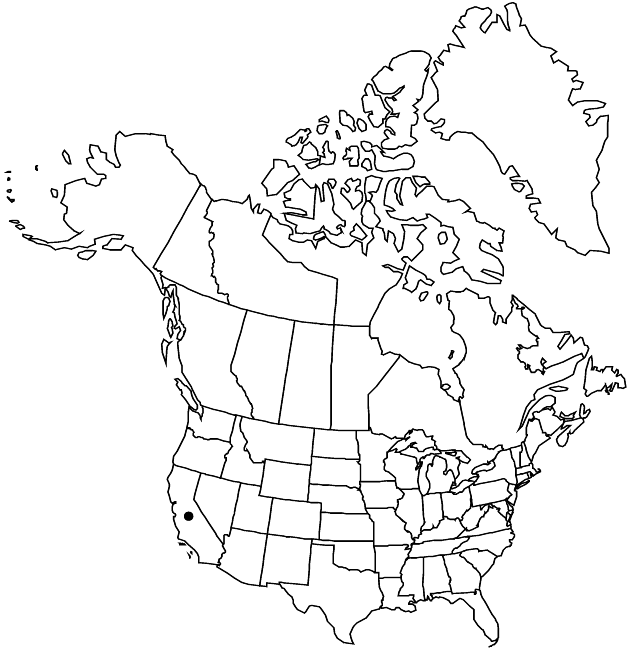Difference between revisions of "Eriophyllum lanatum var. obovatum"
Univ. Calif. Publ. Bot. 3: 186. 1907.
Basionym: Eriophyllum obovatum Greene Erythea 3: 123. 1895
FNA>Volume Importer |
FNA>Volume Importer |
||
| Line 7: | Line 7: | ||
|year=1907 | |year=1907 | ||
}} | }} | ||
| − | |basionyms={{Treatment/ID/ | + | |basionyms={{Treatment/ID/Basionym |
|name=Eriophyllum obovatum | |name=Eriophyllum obovatum | ||
|authority=Greene | |authority=Greene | ||
| + | |publication_title=Erythea | ||
| + | |publication_place=3: 123. 1895 | ||
}} | }} | ||
|synonyms= | |synonyms= | ||
| Line 27: | Line 29: | ||
|distribution=Calif. | |distribution=Calif. | ||
|discussion=<p>Of conservation concern.</p><!-- | |discussion=<p>Of conservation concern.</p><!-- | ||
| − | --><p>Variety obovatum is known only from the Greenhorn and the San Bernardino mountains (M. Skinner and B. Pavlik 1994). It is apparently entirely diploid (J. S. Mooring 1975) and is suspected of forming natural hybrids with <i>Eriophyllum confertiflorum</i> (L. Constance 1937). The scarcely distinguishable <i></i>var.<i> lanceolatum</i> is disjunct by 800 km northward.</p> | + | --><p>Variety obovatum is known only from the Greenhorn and the San Bernardino mountains (M. Skinner and B. Pavlik 1994). It is apparently entirely diploid (J. S. Mooring 1975) and is suspected of forming natural hybrids with <i>Eriophyllum confertiflorum</i> (L. Constance 1937). The scarcely distinguishable <i></i></i>var.<i><i> lanceolatum</i> is disjunct by 800 km northward.</p> |
|tables= | |tables= | ||
|references= | |references= | ||
| Line 51: | Line 53: | ||
|publication year=1907 | |publication year=1907 | ||
|special status= | |special status= | ||
| − | |source xml=https://jpend@bitbucket.org/aafc-mbb/fna-data-curation.git/src/ | + | |source xml=https://jpend@bitbucket.org/aafc-mbb/fna-data-curation.git/src/f6b125a955440c0872999024f038d74684f65921/coarse_grained_fna_xml/V19-20-21/V21_901.xml |
|tribe=Asteraceae tribe Heliantheae | |tribe=Asteraceae tribe Heliantheae | ||
|subtribe=Asteraceae (tribe Heliantheae) subtribe Baeriinae | |subtribe=Asteraceae (tribe Heliantheae) subtribe Baeriinae | ||
Revision as of 18:50, 24 September 2019
Perennials (± taprooted). Proximal leaves alternate; blades oblanceolate, margins entire or coarsely serrate, plane, faces densely woolly. Heads borne singly or 2–3 per array. Peduncles mostly 4–10(–15) cm. Involucres 10–12 mm diam. Ray florets 10–13; laminae 6–7 mm. Cypselae 2.5–4 mm; pappi 0.4–1.2 mm. 2n =16.
Phenology: Flowering Jun–Jul.
Habitat: Conifer forests
Elevation: 1300–2500 m
Discussion
Of conservation concern.
Variety obovatum is known only from the Greenhorn and the San Bernardino mountains (M. Skinner and B. Pavlik 1994). It is apparently entirely diploid (J. S. Mooring 1975) and is suspected of forming natural hybrids with Eriophyllum confertiflorum (L. Constance 1937). The scarcely distinguishable var. lanceolatum is disjunct by 800 km northward.
Selected References
None.
Lower Taxa
None.
